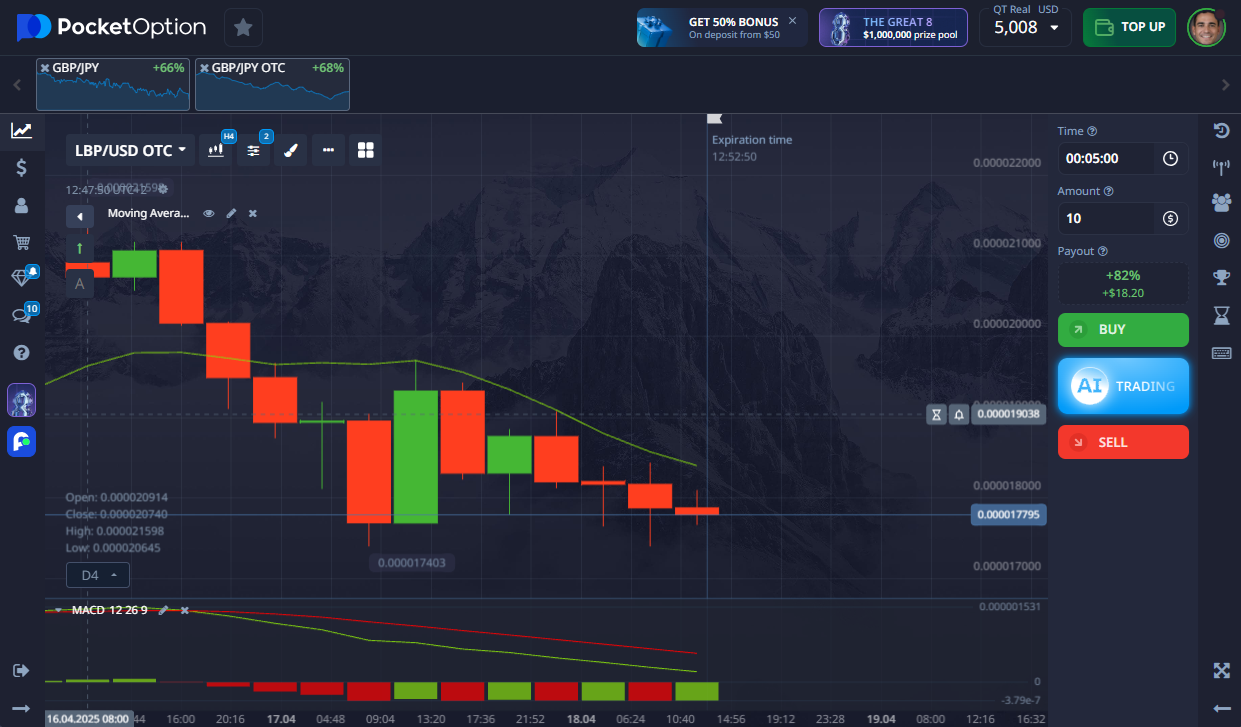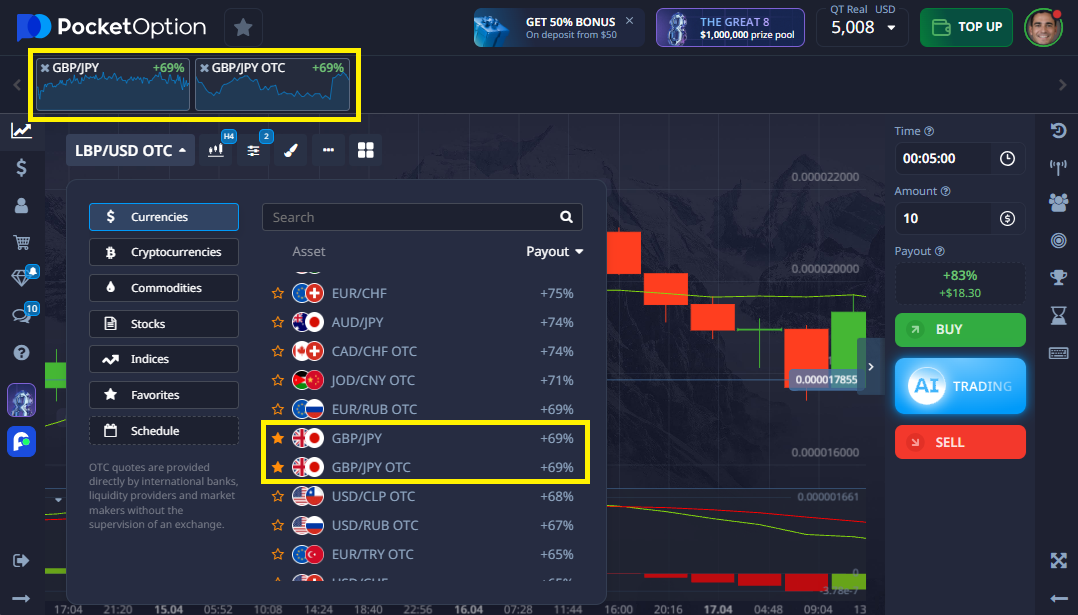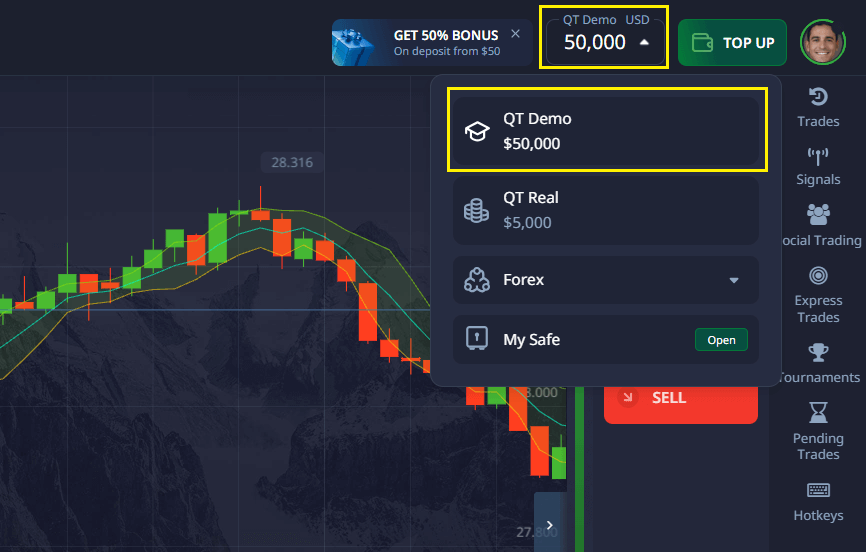- UK economic data and Bank of England interest rate changes
- Bank of Japan monetary policy and bond market interventions
- Risk sentiment in global equities
- Geopolitical tensions or trade trends in Asia and Europe
GBPJPY: How the British Pound and Japanese Yen Pair Moves and How to Trade It

The GBP/JPY currency pair reflects the value of the British Pound against the Japanese Yen. Known for its volatility, it attracts both day traders and long-term investors. Due to contrasting economic styles -- one from the UK, a Western financial hub, and the other from Japan, a low-interest-rate economy -- GBP/JPY offers rich trading dynamics.
What Is GBP/JPY?
GBP/JPY shows how many Japanese Yen one British Pound can buy. The Pound tends to be more sensitive to macroeconomic news, while the Yen is a popular safe-haven asset. The pair’s behavior often mirrors risk sentiment in global markets.
The pair is also influenced by carry trade flows, where traders borrow low-interest JPY to invest in higher-yielding currencies like GBP.

How Currency Quotation Works
If GBP/JPY = 192.50, that means one British Pound equals 192.50 Japanese Yen.
Example: You convert 100 GBP and receive 19,250 JPY. A rising exchange rate means a stronger Pound or weaker Yen.
Factors Influencing GBP/JPY Movement
When risk appetite grows, GBP/JPY often rises. When markets become fearful, Yen demand grows and the pair may fall.
How to Interpret GBP/JPY Price Changes
If GBP/JPY increases from 191.80 to 193.00, the Pound is gaining strength.
If it drops to 190.40, the Yen is gaining.
Example: A sudden fall from 192.20 to 190.90 might reflect safe-haven flows into JPY after weak UK job data or geopolitical risk.
Step-by-Step Quick Trading Example on GBP/JPY
- On the Pocket Option platform, locate GBP/JPY or GBP/JPY OTC in the asset list.
- Analyze the chart — use moving averages, RSI, or trendlines.
- Choose a trade amount from $1.
- Select a trade time — from 5 seconds and above (for OTC assets).
- Make a forecast:
- Press BUY if you think the rate will go up.
- Press SELL if you expect it to go down.
The platform displays potential profit in advance — up to 92% for a correct prediction.
➡️ It only takes seconds to register. You can start with a $5 minimum deposit (deposit may vary depending on payment methods) or try your strategy safely on a demo.

Try Risk-Free — $50,000 Demo Account
Want to test your GBPJPY strategy without real risk? Open a demo account and receive $50,000 in virtual funds to explore the platform and market.
Practice short-term trades, refine your entries, and study live GBPJPY analysis — all without depositing a single dollar.
Switch to a real account from $5 anytime and unlock features like:
- Copy-trading
- Cashback
- Trading tournaments
- Advanced indicators

Conclusion
GBP/JPY combines the volatility of global equities with the precision of interest rate-driven movements. Learning how to trade GBPJPY involves understanding the macroeconomics of two major economies, interpreting real-time sentiment, and executing trades with technical confidence. With Pocket Option’s demo account, you can begin building experience in GBPJPY analysis without financial exposure.
FAQ
How to trade GBPJPY on Pocket Option?
Choose the asset, select trade size and time, and use price action or trend indicators to make a forecast.
How to buy GBPJPY efficiently?
Use Pocket Option tools to analyze the chart, then enter trades when signals align with your strategy.
How to invest in GBPJPY for the long term?
Watch central bank policies and macroeconomic trends; consider swing strategies for larger moves.
What is the best time for GBPJPY analysis?
Overlaps between London and Tokyo/New York sessions offer the most volatility and clear patterns.
What affects GBP/JPY the most?
Interest rate differences, risk sentiment, and bond market policies from the UK and Japan are key drivers.
Comments 1